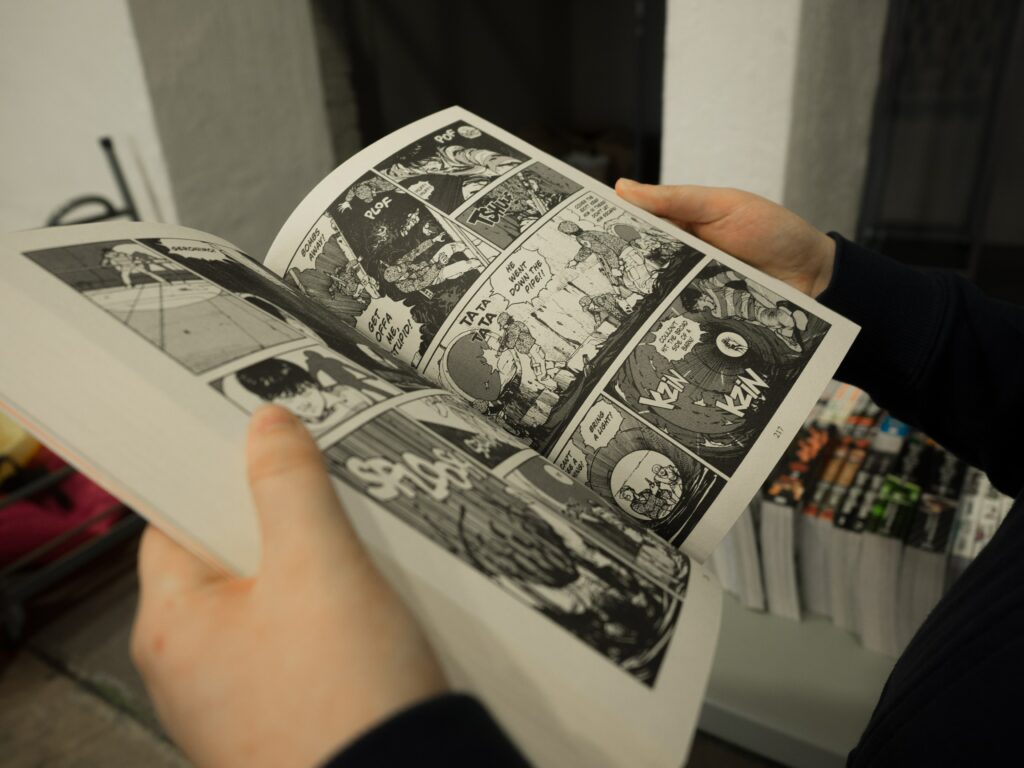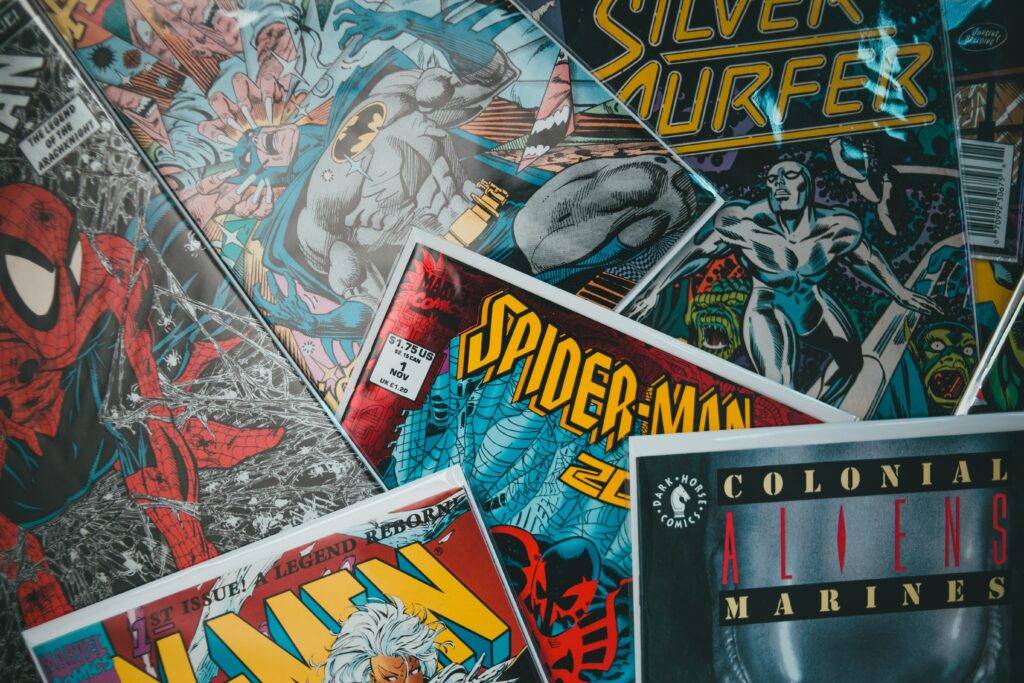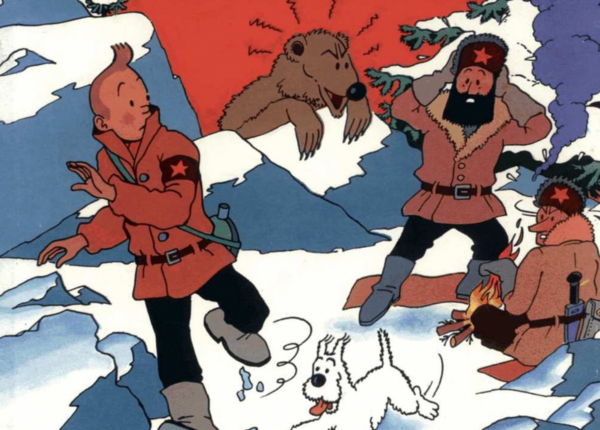For my inquiry time this week, I opened up a comic book about Tintin’s adventures in the Soviet Union. I only read half of the book in order that I could digest some of the content a bit easier. I thoroughly enjoyed reading the comic because it was light, fun, and there seems to be a plot twist at every turn. The pictures attached to the text helped me understand what was happening in the story, without needing to translate the language to English.

This is a huge benefit of comics for language learning that I had not considered before. Babies learn languages through observation, they do not have (as far as we know) another language against which to cross-reference the new vocabulary they are learning. In my own experience, it is more efficient to learn verbs and vocabulary in their proper context. Doing so has helped me to identify where and in what situations I should use certain words, and sometimes supersedes the need to go back and translate those new words to English. I can see comic books being a helpful tool for learning how language is used, without needing to know exactly what a given word or phrase means in English.

In my own practice as an educator, I will definitely remember how effective comics and graphic novels are for teaching language to students. I hope to be involved, to some degree, in helping students who don’t speak English learn the language in schools, whether that is as an ELL teacher, or some kind of liaison. In this role, I also hope to have some opportunities to learn new languages as I interact with students.



